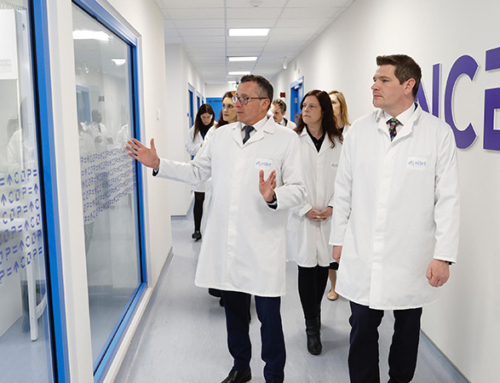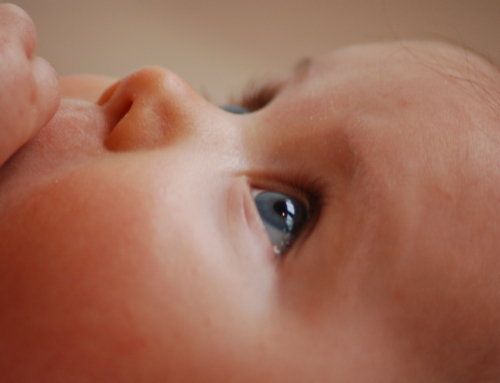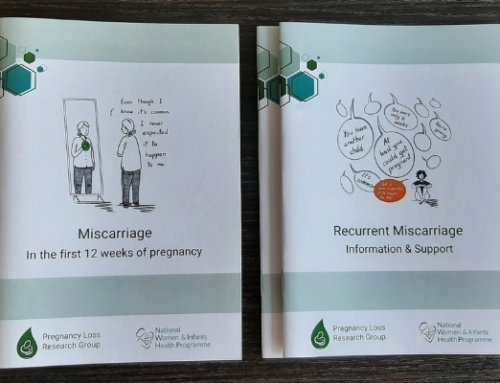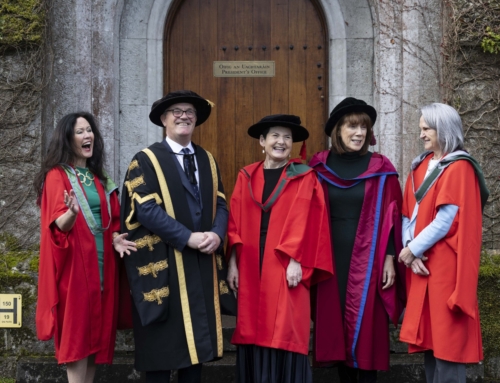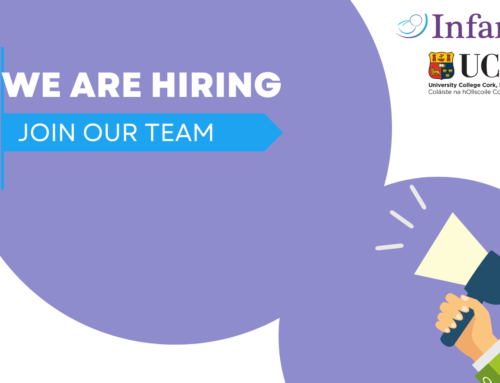Monday 07 September 2015
This article was originally published on September 7th, 2015. For World Preeclampsia Day, May 22nd, 2017, read about INFANT’s research in preeclampsia prediction.
Award for Preeclampsia Research
Ground-breaking work on preeclampsia, a life threatening complication of late pregnancy, has earned researchers in Cork a major award from the American Heart Association.
The international award is a first for Irish researchers and also a first for pregnancy research. The scientific study has been announced as top paper for 2014 in the category of clinical science in Hypertension, the journal of the American Heart Association. The research was carried out by INFANT (The Irish Centre for Fetal and Neonatal Translation Research) based in UCC and the Cork University Maternity Hospital.
The SCOPE (Screening for Pregnancy Endpoints) research is led in Ireland by Louise Kenny, Professor of Obstetrics at University College Cork, Director of the INFANT Centre and Consultant Obstetrician and Gynaecologist at Cork University Maternity Hospital.
The SCOPE project is an international study that aims to develop screening tests to predict and prevent the major complications of late pregnancy, such as pre-eclampsia. Pregnancy can be a dangerous time for millions of women worldwide: pre-eclampsia claims the lives of more than 70,000 women and over 500,000 infants every year.
Prof Kenny explains the reasons behind the study, “it’s about saving the lives of mothers and their babies: that’s why we get up every morning, that’s why this is so important.”

Life-Threatening Complications
This potentially deadly disorder could be prevented with the development of a test that could identify women who are at greatest risk, and the SCOPE study aims to do just this. It will develop an early pregnancy screening test that will offer first time mothers accurate risk assessment. The intensity of prenatal care can then be matched to each woman’s personal risk profile: preventative therapies can be offered if they are needed. Professor Louise Kenny said, “Our goal is to save the lives of affected mums and babies by reducing and eventually preventing the life-threatening complications associated with pre-eclampsia.”
The American Heart Association award is for the group’s first major publication. In this study, 75 putative biomarkers of interest were investigated. None, alone nor in combination, provided a robust enough test, providing further support for Prof Kenny’s work to develop novel biomarkers specific for pregnancy using the new technology.
Predicting Problems
A follow on study called IMPROvED is recruiting pregnant women in the Cork University Maternity Hospital and across Europe, contributing to one of the world’s largest and most detailed “biobanks” with samples given by the mums and babies.
“The next phase will be to combine clinical information and our pregnancy specific biomarkers to develop the most effective system for predicting problems in pregnancy. The final step is to turn this into a prototype blood test” says Louise. “Hopefully mothers and babies should benefit from the new screening test within the next five to ten years.”
 “This is a fantastic achievement by Prof Kenny and her research team […] a testament to the quality of Ireland’s health researchers.”
“This is a fantastic achievement by Prof Kenny and her research team […] a testament to the quality of Ireland’s health researchers.”
“Fantastic Achievement”
The researchers invite first time mums who are less than 17 weeks pregnant to get involved in the study – if interested contact the IMPROvED team by email at improved@ucc.ie
Graham Love, the Chief Executive of the Health Research Board who funded Professor Kenny’s initial involvement in SCOPE said:
“This is a fantastic achievement by Prof Kenny and her research team. It’s both a testament to the quality of Ireland’s health researchers that they can win such a prestigious international award, and also a validation of the HRB’s efforts to foster a dynamic culture of research and innovation at the heart of our health care services.”
Prof Kenny’s original Clinician Scientist Award was then the largest grant made to a single project in Ireland at €1.7 million. It enabled over 1,600 Irish mothers and babies to participate in the SCOPE project and involved 5,700 first time pregnant women in four countries.
Posted in: News


